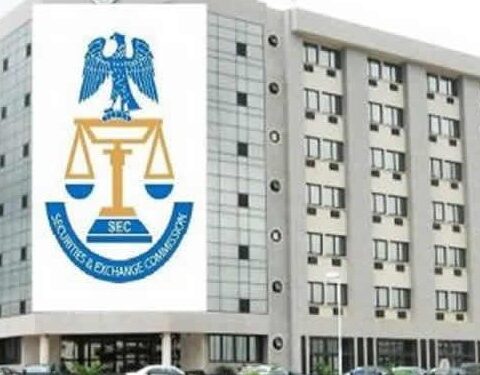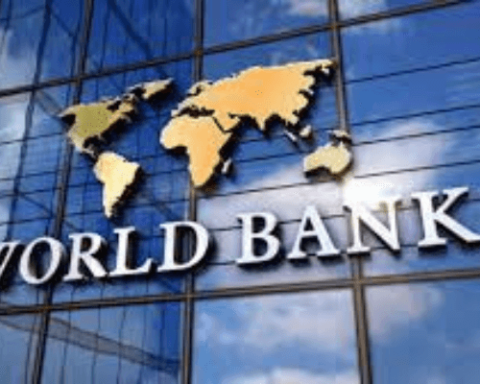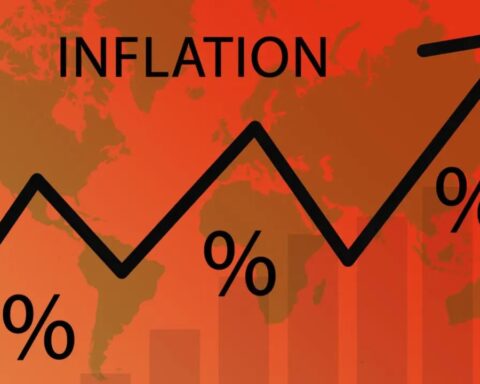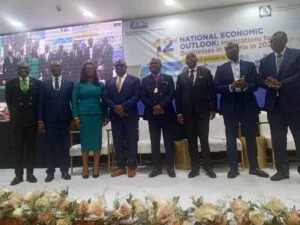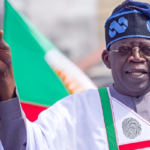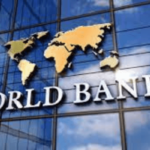In this report, FELIX OGUEJIOFOR ABUGU, examines the hike in PMS prices announced today (Tuesday September 3) by the Nigerian National Petroleum Company Limited (NNPCL) and wonders if the start of production of PMS by the 650,000 bpd Dangote Refinery for sale in the local market will mitigate both the cost and scarcity of the precious product in the country.
The misery index is expected to rise as more families are likely to succumb to the uncertainties of daily living in Nigeria, in the wake of the announcement a few hours ago of a new hike in the official pump price of PMS by the Nigerian National Petroleum Company Limited (NNPCL).
The nation has been reeling under the heavy weight of the fuel price hike when on his inauguration on May 29 last year, President Bola Tinubu announced with some mischievous glint in his eyes that ‘fuel subsidy is gone’.
The PMS price hike had an immediate knock-on effect on prices of practically everything, but particularly those of food stuff and transportation.
In a terse statement on Tuesday (today, September 3), the NNPCL announced an increase in the pump price of the Premium Motor Spirit (PMS), otherwise called petrol, from N617/itre to N897/liter
The short statement from the NNPCL noted: “This is to inform you that NNPC Retail Management has approved upward review of PMS pump price from N617/itre to N897/liter effective today, 3rd September, 2024.
“Please ensure all your pumps and totems (price boards)/MIDs reflect the new PMS price of N897/liter.
“Thank you.”
The announcement came as the denouement to weeks of speculations about plans by the Tinubu Administration, apparently at its wits’ end as to how to effectively manage the nation’s oil sector crisis, to hike petroleum products pump prices, an expected administrative response to the admission early in the week by the NNPCL that it is owing European petrol suppliers a substantial amount of money and, therefore, is unlikely to be given further credit to import fuel.
In a release by its Chief Communications Officer, Olufemi Soneye, the corporation indicated that the debt which has risen to $6 billion, has led to suppliers reducing the volume given to the Nigerian nationaloil company with the result that the nation has had to deal with about six weeks of petrol scarcity across the land.
Soneye admitted in the statement that the debt has posed a significant financial strain on NNPCL operations, an indication that something dramatic had to be done about the development to avoid the chaos that would arise from the complete lack of fuel to drive the economy.
When many began to speculate that PMS’ price hike was underway, the Federal government had rubbished such reports trending on social media with the government, in a statement on Tuesday, signed by Nnemaka Okafor, Special Adviser to the Minister of State for Petroleum, rubbishing the report as concocted and ill-conceived and aimed at sowing discord and confusion in the oil industry.
“There was never a time the FG interfered with petroleum pricing with NNPCL, let alone give directives for price increment,” the statement read, in part.
“The Federal Government is compelled to address the outright falsehoods currently being circulated on social media, which claim that the Honourable Minister for Petroleum Resources (Oil), Senator Heineken Lokpobiri, has directed the Nigerian National Petroleum Company Limited (NNPCL) to inflate petroleum prices above the approved pump price.
“We categorically condemn these claims as baseless, malicious, and a deliberate attempt to incite public discontent.
“We challenge anyone in possession of any evidence-be it written documents, audio, or video recordings-that supports these fabrications to make it public.
“Such a claim is entirely devoid of truth and should be recognized as an intentional effort to mislead the public.
“It must be stressed that NNPCL operates as an independent entity under the Companies and Allied Matters Act (CAMA), with a fully empowered Board of Directors.
“The Ministry of Petroleum Resources does not, and will not, interfere in the internal decisions of NNPCL, including pricing matters. Any suggestion otherwise is incorrect and reveals a profound misunderstanding of the deregulated nature of Nigeria’s petroleum sector.”
According to her, the story was taken out of context to cause panic.
The Minister, she said, merely elaborated on why fuel smuggling and pipeline vandalism cannot stop, when he said “If NNPC imports PMS and sells to marketers at perhaps N600 or below, there’s no way that smuggling can stop”.
Now the cat has been let out of the bag. While the NNPCL and perhaps the major marketers would be pricing at the official price, the independent marketers who make up the bulk of petroleum marketers across the country, who are already selling at at between N900 and N1005 per litre in some parts of the country, are likely to sell at even a little higher.
Needless to say that the price hike will push prices off the roof again, sparking a new wave of frustrations, hardships and even deaths from hunger and total lack, among Nigerians.
Dangote to the rescue?
With NNPCL as the sole offtaker of Dangote’s PMS for the local market, it is unlikely that prices will come any time soon. As a matter of fact, it is widely believed that NNPC announced this price hike today to coincide with Dangote’s announcement also today that its PMS is ready for the local market.
This is because in the supply chain, all the parties involved must make their margins or their businesses will go under. It means that when NNPCL buys from Dangote and sells to the independent marketers, there is no way they will sell to the end users at anything close to the NNPCL prices.
But, at least there will be supplies and the nation will no longer have to wait for shiploads to arrive from Europe before the filling stations will have the precious PMS to pump into people’s car tanks and jerrycans.
The continuous recourse to price hikes as the only tool of management of the nation’s oil industry speaks to the failure, or even refusal, of the industry stakeholders to manage Nigeria’s oil resources for the greater good.
For decades, Nigerians have observed the fluctuating journey of fuel prices, spanning from a humble 6 kobo in 1973 to a staggering 617 naira per liter in 2023 and now N887.
The price hikes have not been helped by the fact that the nation’s three public refineries in Port Harcourt, Warri and Kaduna, have been moribund for over 20 years, fueling speculations that there are deliberate efforts to keep the refineries down so importation would boom.
If that is the case, the saboteurs have actually succeeded big time, with many feeding fat on the scams that fuel importation in Nigeria had become over time.
With Dangote coming onstream, will the importation regime still thrive?
As they say, the answer to this question is in the womb of time.
FUEL PRICE SUMMARY
1973-1999: Formative Years
The early years saw relatively modest increases:
Gowon (1973): 6k to 8.45k (40.83%)
Murtala (1976): 8.45k to 9k (6.5%)
Obasanjo (1978): 9k to 15.3k (70%)
Shagari (1982): 15.3k to 20k (30.72%)
Babangida I (1986): 20k to 39.5k (97.5%)
Babangida II (1988): 39.5k to 42k (6.33%)
Babangida III (1989): 42k to 60k (42.86%)
Babangida IV (1991): 60k to 70k (16.67%)
1993-2003: Turbulent Transitions
Shonekan (1993): 70k to N5 (614.29%)
Abacha I (1993): N5 to N3.25k (price dropped 35%)
Abacha II (1994): N3.25k to N15 (361.54%)
Abacha III (1994): N15 to N11 (price dropped 26.67%)
Abubakar I (1998): N11 to N25 (127.27%)
Abubakar II (1999): N25 to N20 (price dropped 25%)
2000-2007: Obasanjo’s Changes
Obasanjo I (2000): N20 to N30 (50%)
Obasanjo II (2000): N30 to N22 (price drops 26.67%)
Obasanjo III (2002): N22 to N26 (18.18%)
Obasanjo IV (2003): N26 to N42 (61.54%)
Obasanjo V (2004): N42 to N50 (19.05%)
Obasanjo VI (2004): N50 to N65 (30%)
Obasanjo VII (2007): N65 to N75 (15.39%)
2007-2015: Fluctuations and Peaks
Yar’ Adua (2007): Back to N65 (price drops 15.39%) (Kudos to the only president that made sure fuel prices reduced)
Jonathan I (2012): N65 to N141 (116.92%)
Jonathan II (2012): N141 to N97 (price drops 31.21%)
Jonathan III (2015): N97 to N87 (price drops 10.31%)
2015-2023: Buhari’s Era and Contemporary Challenges
Buhari (2016): N87 to N145 (66.67%)
Buhari’s term (2015-2023): N87 to N195 per litre (124% increase)
2023: Tinubu’s Impact
Tinubu (2023) : N195 to N557
Tinub (2023) : N557 to N617
Tinubu(2024): N617 to 887
Written with additional information from TheNiche online

